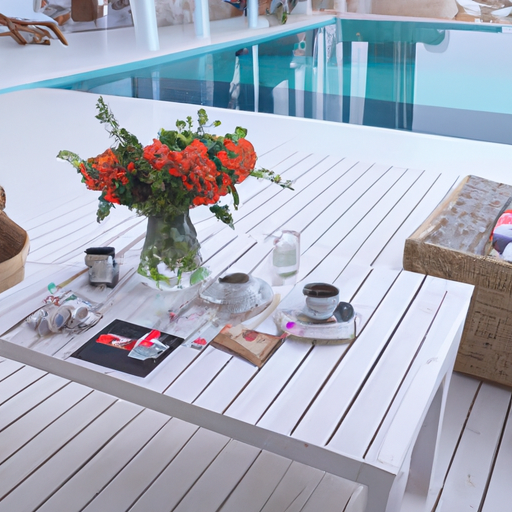
Integration Capabilities: How to Choose a CRM that Seamlessly Integrates with Your Existing Hotel Systems
When it comes to selecting a CRM for your hotel, there are several factors that you need to consider. One of the most important factors is the integration capabilities of the CRM. You want to choose a CRM that seamlessly integrates with your existing hotel systems to ensure a smooth and efficient operation.
First and foremost, you need to assess the compatibility of the CRM with your current systems. This includes your property management system (PMS), your reservation system, and any other software that you use to manage your hotel operations. The CRM should be able to integrate with these systems without any issues, allowing for a seamless flow of data between them.
Another factor to consider is the ease of integration. You don’t want to spend hours or even days trying to integrate the CRM with your existing systems. Look for a CRM that offers a simple and straightforward integration process, preferably with step-by-step instructions or even a dedicated support team to assist you.
Furthermore, it’s important to consider the level of customization that the CRM offers in terms of integration. Every hotel has unique needs and requirements, so you want a CRM that can be tailored to fit your specific integration needs. Look for a CRM that allows you to map data fields, set up automated workflows, and customize the user interface to match your existing systems.
Additionally, you should consider the scalability of the CRM. As your hotel grows and evolves, you may need to add new systems or upgrade your existing ones. Therefore, it’s crucial to choose a CRM that can easily accommodate these changes and integrate with new systems as they are implemented.
Moreover, it’s worth considering the support and training provided by the CRM provider. Even with a user-friendly CRM, you may still encounter issues or have questions during the integration process. Look for a provider that offers comprehensive support, including access to a knowledgeable support team and resources such as tutorials or training materials.
Furthermore, it’s beneficial to choose a CRM that offers ongoing updates and improvements. Technology is constantly evolving, and you want a CRM that stays up-to-date with the latest advancements. This ensures that your integration capabilities remain seamless and that you can take advantage of new features and functionalities as they become available.
Lastly, consider the cost of integration. While it’s important to choose a CRM that meets your integration needs, you also need to consider your budget. Look for a CRM that offers a reasonable price for the integration capabilities it provides. Keep in mind that the cost of integration should be viewed as an investment in the efficiency and effectiveness of your hotel operations.
In conclusion, when selecting a CRM for your hotel, it’s crucial to consider the integration capabilities of the CRM. Look for a CRM that is compatible with your existing systems, offers easy integration, allows for customization, and can scale with your hotel’s growth. Additionally, consider the support and training provided, the availability of updates and improvements, and the cost of integration. By carefully considering these factors, you can choose a CRM that seamlessly integrates with your existing hotel systems and enhances your overall operations.
Customization Options: Key Factors to Consider When Selecting a CRM that Can be Tailored to Your Hotel’s Specific Needs

When it comes to selecting a CRM for your hotel, customization options are key. Every hotel is unique, with its own specific needs and requirements. Therefore, it is important to choose a CRM that can be tailored to meet those needs. In this article, we will discuss seven factors to consider when selecting a CRM that offers customization options.
First and foremost, it is important to consider the flexibility of the CRM. A good CRM should allow you to customize various aspects of the system, such as the user interface, workflows, and reports. This will enable you to adapt the CRM to your hotel’s specific processes and requirements.
Secondly, you should consider the level of customization that is available. Some CRMs offer a wide range of customization options, allowing you to make changes to almost every aspect of the system. Others may have more limited customization capabilities. It is important to choose a CRM that offers the level of customization that is right for your hotel.
Another factor to consider is the ease of customization. The CRM should have a user-friendly interface that makes it easy for you to make changes and customize the system. It should not require extensive technical knowledge or coding skills. Instead, it should offer a simple and intuitive customization process.
Integration capabilities are also important when considering customization options. A good CRM should be able to integrate with other systems and software that you use in your hotel, such as your property management system or your email marketing software. This will allow you to streamline your operations and have all your data in one place.
Furthermore, it is important to consider the scalability of the CRM. As your hotel grows and evolves, your CRM needs may change. Therefore, it is important to choose a CRM that can grow with your hotel and accommodate your changing needs. Look for a CRM that offers scalability and the ability to add or remove features as needed.
Additionally, it is important to consider the support and training options provided by the CRM provider. Customizing a CRM can be a complex process, and it is important to have access to support and training resources to help you along the way. Look for a CRM provider that offers comprehensive support and training options, such as online tutorials, documentation, and a dedicated support team.
Lastly, consider the cost of customization. Some CRMs may charge additional fees for customization services, while others may include customization options as part of their standard package. It is important to consider your budget and weigh the cost of customization against the benefits it will bring to your hotel.
In conclusion, customization options are key when selecting a CRM for your hotel. Consider the flexibility, level of customization, ease of customization, integration capabilities, scalability, support and training options, and cost of customization when making your decision. By choosing a CRM that can be tailored to your hotel’s specific needs, you will be able to streamline your operations, improve guest satisfaction, and ultimately, drive revenue.
Data Security: Ensuring the Protection of Guest Information When Choosing a CRM for Your Hotel
When it comes to selecting a CRM for your hotel, there are several factors that you need to consider. One of the most important factors is data security. As a hotel, you handle a lot of sensitive guest information, such as names, addresses, and credit card details. It is crucial to ensure that this information is protected and kept secure at all times.
First and foremost, you need to look for a CRM that has robust security measures in place. This means that the CRM should have encryption protocols to protect data both in transit and at rest. Encryption ensures that even if someone were to intercept the data, they would not be able to read or use it. Look for a CRM that uses industry-standard encryption algorithms, such as AES-256, to ensure the highest level of security.
Another important factor to consider is the CRM’s compliance with data protection regulations. In many countries, there are strict laws and regulations in place to protect the privacy and security of personal data. Make sure that the CRM you choose is compliant with these regulations, such as the General Data Protection Regulation (GDPR) in the European Union. Compliance with these regulations not only ensures the protection of guest information but also helps you avoid hefty fines and legal consequences.
In addition to encryption and compliance, it is also important to consider the CRM’s access controls. You need to have control over who can access and modify guest information within the CRM. Look for a CRM that allows you to set user roles and permissions, so that only authorized personnel can access sensitive data. This helps prevent unauthorized access and reduces the risk of data breaches.
Furthermore, consider the CRM’s backup and disaster recovery capabilities. Accidents happen, and data can be lost or corrupted. It is essential to have a CRM that regularly backs up your data and has a robust disaster recovery plan in place. This ensures that even in the event of a system failure or data loss, you can quickly restore your data and continue operations without any major disruptions.
Another factor to consider is the CRM’s history of security incidents. Look for a CRM provider that has a good track record when it comes to data security. Research their history of security incidents and how they have handled them. This will give you an idea of how seriously they take data security and how well they respond to and mitigate security threats.
Additionally, consider the CRM’s data retention policies. How long does the CRM retain guest information? It is important to have a clear understanding of this, as it can impact your compliance with data protection regulations. Make sure that the CRM’s data retention policies align with your own policies and legal requirements.
Lastly, consider the CRM’s ability to integrate with other systems. Many hotels have multiple systems in place, such as property management systems and booking engines. It is important to choose a CRM that can seamlessly integrate with these systems, as it allows for the secure transfer of guest information between systems without the need for manual data entry.
In conclusion, data security is a crucial factor to consider when selecting a CRM for your hotel. Look for a CRM that has robust security measures in place, complies with data protection regulations, and allows for granular access controls. Consider the CRM’s backup and disaster recovery capabilities, history of security incidents, data retention policies, and ability to integrate with other systems. By carefully considering these factors, you can ensure the protection of guest information and maintain the trust of your guests.

